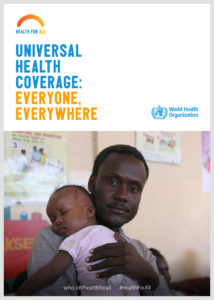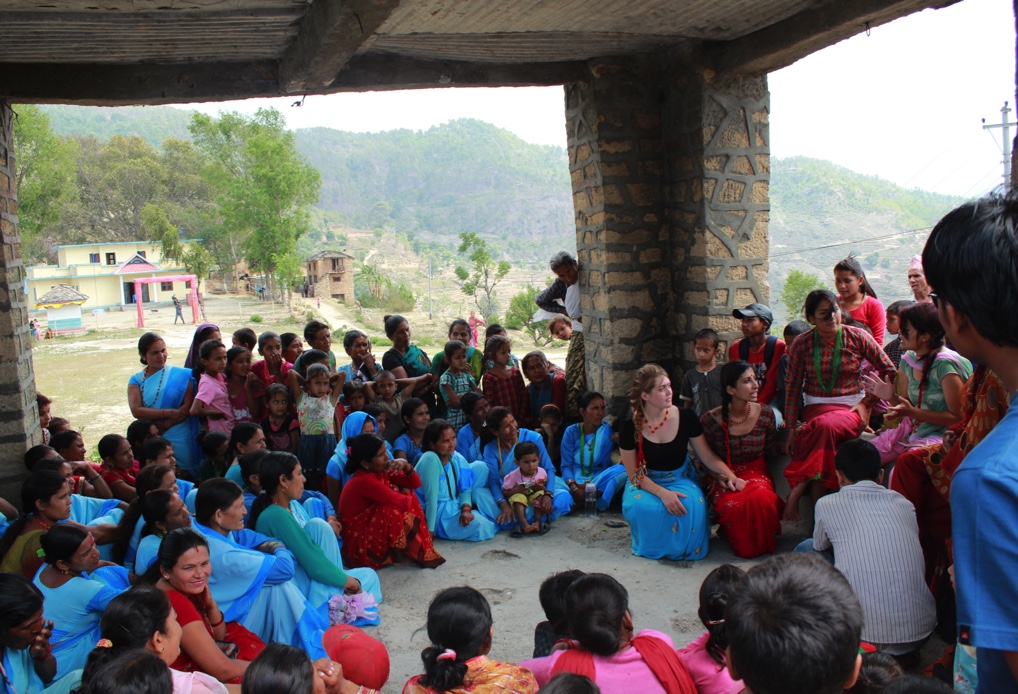April 7 is celebrated each year as World Health Day. As Dr. Gro Harlem Brundtland (learn more about her here) famously noted in her leadership of the world’s first comprehensive look at sustainability, the issues of public health, environmental quality and economic development are not three issues—but one.

World Health Day is celebrated on April 7 to recognize the founding of the World Health Organization (WHO) on that date in 1948. WHO is a United Nations agency that focuses on public health concerns around the globe. It employs 7,000 people in 150 countries, 6 regional offices and the headquarters in Geneva, Switzerland.
As the constitution of WHO states,
“Health is a state of complete physical, mental and social well-being and not merely the absence of disease or infirmity.
The enjoyment of the highest attainable standard of health is one of the fundamental rights of every human being without distinction of race, religion, political belief, economic or social condition.
The health of all peoples is fundamental to the attainment of peace and security and is dependent upon the fullest co-operation of individuals and States.”
Thoughtful leaders understand that people who are unhealthy (or living in poverty) must be concerned most about their immediate issues—hunger, illness, disability and imminent death. Consequently, they are less likely to act positively on longer-term behavior to enhance environmental sustainability. As Brundtland understood, jointly solving the issues of health, poverty and environmental sustainability is the only successful route to a world of peace and plenty for all.
Each year, World Health Day highlights a particular theme. For 2022, the theme is “our planet, our health.” WHO notes the following:
- 90% of the world’s population breathe unhealthy air, caused by pollution
- 13 million people die every years from avoidable environmental causes
- Climate change is the biggest threat to human civilization; burning fossil fuels costs $8 billion per day in reduced health and prosperity

As the 2022 World Health Day site states, “The present design of the economy leads to inequitable distribution of income, wealth and power, with too many people still living in poverty and instability. A well-being economy has human well-being, equity and ecological sustainability as its goals. These goals are translated into long-term investments, well-being budgets, social protection and legal and fiscal strategies. Breaking these cycles of destruction for the planet and human health requires legislative action, corporate reform and individuals to be supported and incentivized to make healthy choices.”
Assuring a healthy human population is as much a conservation and sustainability issue as assuring healthy populations of the rest of nature’s species and ecosystems.
References:
World Health Organization. 2006. Constitution. Available at: http://www.who.int/governance/eb/who_constitution_en.pdf. Accessed April 6, 2018.
World Health Organization. 2017. Tokyo Declaration on Universal Health Coverage. Available at: http://www.who.int/universal_health_coverage/tokyo-decleration-uhc.pdf?ua=1. Accessed April 6, 2018.
World Health Organization. 2017. Universal health coverage (UHC) fact sheet. Available at: http://www.who.int/mediacentre/factsheets/fs395/en/. Accessed April 6, 2018.
World Health Organization. 2022. World Health Day, 2022. Available at: https://www.who.int/campaigns/world-health-day. Accessed April 6, 2022.
